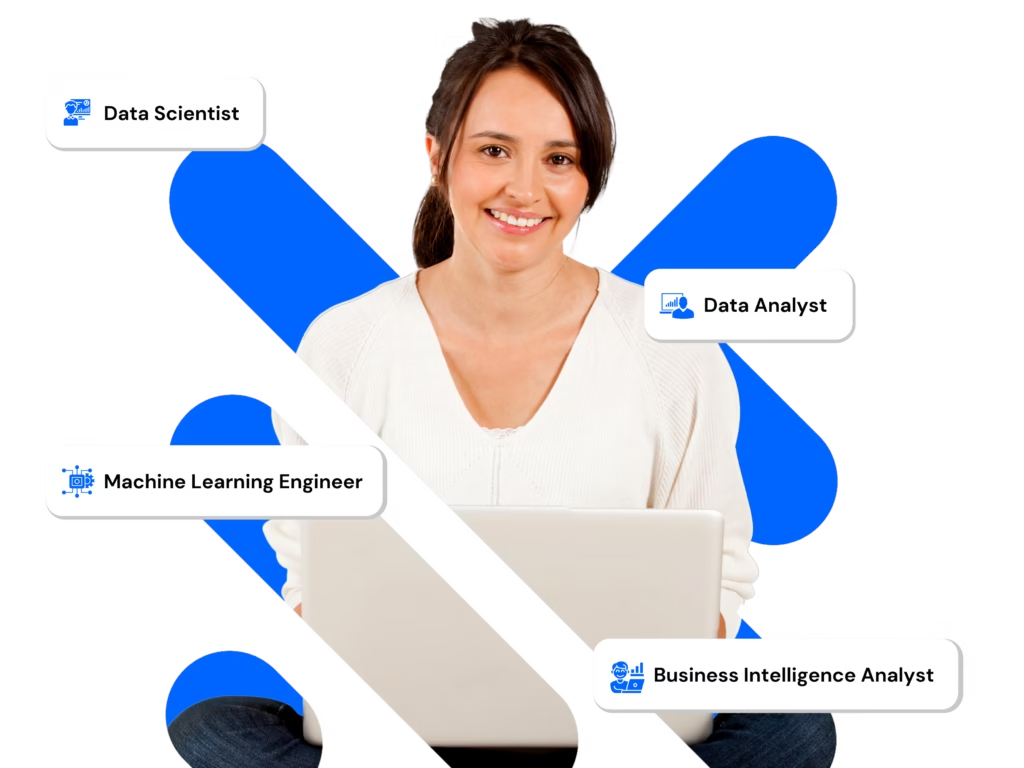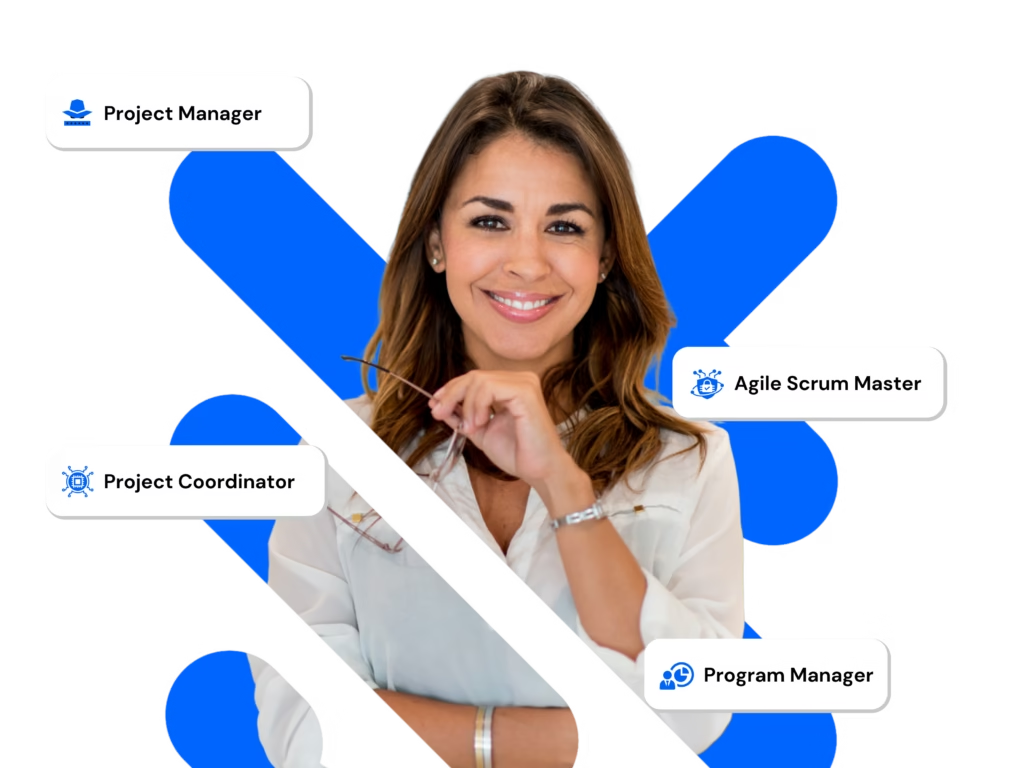Machine learning is now a key component of innovation, enabling applications in a wide range of industries, including retail, healthcare, and finance. However, creating accurate and reliable machine learning models has always required significant resources and specialized knowledge. By automating the model development pipeline, from feature engineering and data preparation to algorithm selection, hyperparameter tuning, and deployment, Automated Machine Learning (AutoML) addresses this problem. AutoML enables both experts and non-experts to use machine learning in practical situations by simplifying and improving the process.
Table of Contents
What is AutoML?
Automated machine learning, or AutoML, is a technique that simplifies applying machine learning to real-world problems by automating technical and repetitive operations. AutoML platforms take care of algorithm selection, hyperparameter tuning, and model validation automatically, saving data scientists work. This makes machine learning more accessible and frees up companies to concentrate on solving problems rather than technical implementation.Data preprocessing, feature engineering, model training, and deployment are all covered by AutoML technologies. Faster development times, lower costs, and increased accessibility to ML technology are the results. Companies in a variety of industries utilize AutoML to improve operational efficiency, predictive analysis, and decision-making.
AutoML Tools
Although there are other AutoML platforms, the Top 10 AutoML Tools listed below are famous for their dependability, adaptability, and industry acceptance.Without requiring much knowledge, these tools help researchers and businesses in realizing the potential of machine learning.
1. Google Cloud AutoML

Google Cloud AutoML is a component of Google’s AI and ML ecosystem, providing user-friendly solutions for classifying texts, image recognition, translation, and tabular data forecasting. It is appropriate for companies looking for production-ready AI models without requiring advanced expertise because it automates training, hyperparameter tuning, and deployment. Users may take advantage of cloud scalability and reliable infrastructure through seamless connection with Google services like BigQuery and TensorFlow, guaranteeing that projects can expand as data and demand rise.
The smooth integration of Google Cloud AutoML with the larger Google Cloud ecosystem, which includes BigQuery, TensorFlow, and AI APIs, is one of its main advantages. It is used by businesses for activities including sentiment analysis, image recognition, and language translation. Projects ranging from small startups to major corporations are supported by its scalability. It is perfect for companies that prioritize innovation because of its enterprise-grade security, automated upgrades, and compliance capabilities. Google Cloud AutoML enables companies to swiftly implement top-notch AI models, opening up new opportunities while cutting expenses and resource dependence.
2. H2O AutoML (H2O.ai)

An open-source framework known for its speed, scalability, and industry-wide adaptability is H2O AutoML. Gradient boosting, deep learning, random forests, generalized linear models, and powerful ensemble techniques are just a few of the many machine learning algorithms it supports. Users may easily train, assess, and compare a large number of models due to its automated workflow, which eliminates the need for advanced machine learning expertise. H2O is a great option for developers and data scientists alike because it also works well with programming languages like Python, R, and Java.
The platform has become widely used in sectors where businesses depend on huge databases and require quick insights, such as marketing, finance, healthcare, and insurance. Explainable AI, which provides understanding and model transparency, is one of its most important aspects. This ensures that decision-makers may rely on predictions and adhere to legal requirements. H2O is appropriate for large-scale deployment since it also offers enterprise-grade support and cloud integration. H2O AutoML is a top choice for companies looking for dependable, production-ready machine learning capabilities because of its performance, transparency, and explainability.
3. Microsoft Azure AutoML

In the Azure ecosystem, Microsoft Azure AutoML provides an automated machine learning platform that makes it simpler for businesses to create models without requiring deep expertise. It supports classification, regression, and forecasting while handling crucial activities like model selection, training, and hyperparameter modification. Deep learning and time-series forecasting are examples of advanced features that are offered. Teams can easily use machine learning and obtain insights with little effort because of its user-friendly design and smooth connection with products like Power BI.
Azure AutoML is unique for its focus on transparency, interpretability, and compliance—all of which are essential for regulated businesses. It can be used by organizations to monitor model performance, fairness, and accuracy over time. Companies that already use Microsoft products benefit from seamless integration with Azure DevOps, Office 365, and other Azure services. It offers enterprise-level security and worldwide scalability and is widely utilized in the retail, healthcare, and financial sectors. Azure AutoML is a reliable and useful option for businesses looking to promote AI while maintaining long-term control and dependability.
4. Amazon SageMaker Autopilot

AWS’s machine learning ecosystem is made more automated with Amazon SageMaker Autopilot. It generates candidate models while offering insights into each stage by automatically processing data, choosing methods, and adjusting hyperparameters. Autopilot gives customers both automation and control by providing knowledge about data conversions and model selections, in contrast to black-box systems.
The greatest advantage of SageMaker Autopilot is how well it interacts with AWS services like S3, Redshift, and CloudWatch. Because of this, it is particularly helpful for businesses that already utilize AWS for workloads. Large-scale initiatives in sectors like finance, logistics, and e-commerce can be managed using it.Users can use Amazon’s powerful cloud infrastructure to put models straight into production with a few clicks. Autopilot offers features for explainability, scalability, and cost control while striking a balance between versatility and ease of use. Because of its automation and customization features, it may be used by both beginners investigating machine learning and experienced professionals improving advanced solutions.
5. TPOT (Tree-based Pipeline Optimization Tool)

Based on scikit-learn, TPOT (Tree-based Pipeline Optimization Tool) is an open-source AutoML package. It automates feature selection, preprocessing, and model modification through the use of genetic programming to optimize machine learning processes. TPOT requires very little code to operate, and it searches through thousands of pipeline configurations to identify the most efficient one.
TPOT is especially popular in settings that require experimentation and optimization, such as academic and research environments. By producing the finished pipeline as testable Python code, it offers transparency and permits future improvement and modification. TPOT enables users to find answers they might not have thought of manually, but it does require some programming experience. It is appropriate for use in marketing, healthcare, and predictive analytics because of its adaptability in handling different datasets. TPOT provides a combination of efficiency and flexibility that appeals to both professionals and researchers by combining automation with reproducibility.
6. DataRobot

For businesses seeking complete machine learning automation, DataRobot is a top commercial AutoML platform. It supports time-series, unstructured, and structured data, and it optimizes processes from data ingestion to model deployment. After analyzing hundreds of models, its automatic system suggests the top-performing ones. Large-scale tasks can be completed effectively by teams thanks to collaboration features.
The fact that DataRobot is built for business use makes it unique. Because of its strong governance, explainability, and compliance characteristics, it is ideal for sectors like government, healthcare, and finance. Because of its strong analytical knowledge, businesses use it for activities like fraud detection, risk modeling, and consumer analytics. Adoption is made easier by the platform’s seamless integration with current cloud services and IT systems. DataRobot is trusted by multinational corporations for mission-critical projects because of its strong customer service and ongoing innovation. It is a great option for businesses looking to rapidly scale their AI initiatives because of its combination of automation, collaboration, and transparency.
7. IBM Watson AutoAI

A cloud-based technology called IBM Watson AutoAI automates processes including feature engineering, model selection, and data preprocessing. It offers tools for explainability and fairness and supports a variety of machine learning frameworks. Watson AutoAI’s drag-and-drop interface makes machine learning accessible to teams of all skill levels, including non-technical ones.
Watson AutoAI is used by sectors like banking, insurance, and healthcare because of its compliance-ready capabilities and capacity to handle big datasets. IBM places a strong emphasis on governance, making sure that models follow legal and ethical criteria. Its ecosystem is improved by integration with IBM Cloud and Watson services, which provide more AI capabilities, including natural language processing. Both pilot projects and enterprise-level deployments are supported by its scalability. IBM is an ideal choice for businesses that value compliance and ethical AI deployment because of its established reputation in corporate technology and AutoAI’s focus on trust and transparency.
8. PyCaret

PyCaret is a low-code, open-source machine learning library that significantly simplifies model development. Users may train, compare, and implement models for tasks like anomaly detection, regression, clustering, and classification with just a few lines of code. It is very accessible to professionals, analysts, and students due to its quick experimentation design.
Beyond its ease of use, PyCaret works with advanced libraries like scikit-learn, TensorFlow, and PyTorch. Additionally, it is compatible with cloud systems, making deployment in production settings simple. PyCaret is used by organizations for rapid prototyping, when efficiency and speed are crucial. It is particularly well-liked by startups, educational institutions, and companies that are just beginning to experiment with machine learning. PyCaret lowers the technological barrier and speeds up model development by providing a balance between automation and flexibility, making it accessible and expanding the use of machine learning.
9. AutoGloun

With a strong emphasis on deep learning and structured data, AutoGluon is an open-source library created by Amazon with the goal of making machine learning simpler. It automates hyperparameter tuning, feature engineering, and model training. AutoGluon performs exceptionally well in tasks like natural language processing, image classification, and tabular prediction. Because of its high-level API, users may easily and quickly achieve cutting-edge solutions with little coding.
Businesses and researchers appreciate AutoGluon’s capacity to provide high accuracy while cutting down on development time. To provide resilience, it enables model ensembles, multi-layer stacking, and advanced neural networks. Because of its adaptability, it may be used in a variety of fields, including text analysis, image recognition, and e-commerce. AutoGluon appeals to both beginners investigating deep learning and specialists working on challenging AI problems since it blends user-friendliness with cutting-edge performance. It keeps developing quickly as a component of Amazon’s ecosystem, providing an adaptable and cutting-edge AutoML solution.
10. Auto-Keras

Developed on top of Keras and TensorFlow, Auto-Keras is an open-source AutoML framework designed to automate the creation of deep learning models. It makes difficult jobs like text classification, image recognition, and structured data analysis easier. Auto-Keras makes deep learning more approachable for non-experts by using neural architecture search to automatically find the best neural networks.
Its ability to lower obstacles to deep learning research and development is its biggest strength. Academic institutions, startups, and businesses experimenting with AI-driven applications all make extensive use of Auto-Keras. It offers robust default performance together with customizable options. Because it automates architectural selection and hyperparameter optimization, developers value the time savings it provides. Auto-Keras is becoming a more viable option for deep learning enthusiasts because of community-driven development and enthusiastic support. Innovation in fields like computer vision, natural language processing, and healthcare is accelerated by Auto-Keras, which connects cutting-edge neural network research with intuitive automation.
Conclusion
In today’s data-driven environment, AutoML is no longer merely a tool; it is now necessary. The automation, scalability, and industry acceptance of the top 10 AutoML technologies we examined—Google Cloud AutoML, H2O AutoML, Microsoft Azure AutoML, Amazon SageMaker Autopilot, TPOT, DataRobot, IBM Watson AutoAI, PyCaret, AutoGluon, and Auto-Keras—make them stand out. These platforms shorten development times, save money, and increase machine learning’s accessibility for businesses of all kinds by streamlining the model-building process. AutoML offers the effectiveness and adaptability required to realize machine learning’s full potential, regardless of whether you’re a startup testing prototypes or an organization using AI on a large scale.
FAQ’s
Do data scientists get replaced by AutoML?
No, AutoML enhances the job of data scientists rather than taking their place. By automating technical and difficult tasks like feature engineering, algorithm selection, and hyperparameter tweaking, AutoML platforms enable the faster and more effective construction of models. However, data scientists continue to be essential in identifying the business challenge, cleaning and preparing datasets, analyzing model results, and guaranteeing the just and moral application of AI. Human judgment, subject knowledge, and creativity needed for developing solutions that have an impact cannot be replaced by AutoML. Rather, it frees up data scientists to concentrate on more important strategic and analytical work.
What is the best AutoML tool for deep learning?
AutoGluon and Auto-Keras are two of the best AutoML platforms for deep learning. Amazon created AutoGluon, which excels at tasks like tabular prediction, image categorization, and natural language processing. It offers advanced capabilities like neural network stacking and model ensembles, which provide great accuracy with little code. Based on TensorFlow and Keras, Auto-Keras is a neural architecture search tool that automatically finds the optimal deep learning models for computer vision and text classification problems. By simplifying the process of creating neural networks, both technologies increase the accessibility of deep learning for researchers, developers, and businesses.
What is AutoML’s approach to data preprocessing?
Data preprocessing is made easier by AutoML platforms, which automatically clean, normalize, and transform datasets. Usually, automated processes are used to handle missing values, encode category variables, scale numerical data, and identify outliers. Advanced feature engineering is another aspect of some platforms, such as IBM Watson AutoAI and H2O AutoML, which creates new features from unprocessed data to increase model accuracy. Even though automation saves time, users should still go over preparation processes to make sure the data is relevant and of high quality. While domain expertise is still necessary, AutoML lessens complexity and workload so that teams can concentrate on insights and business outcomes rather than repetitive tasks.





